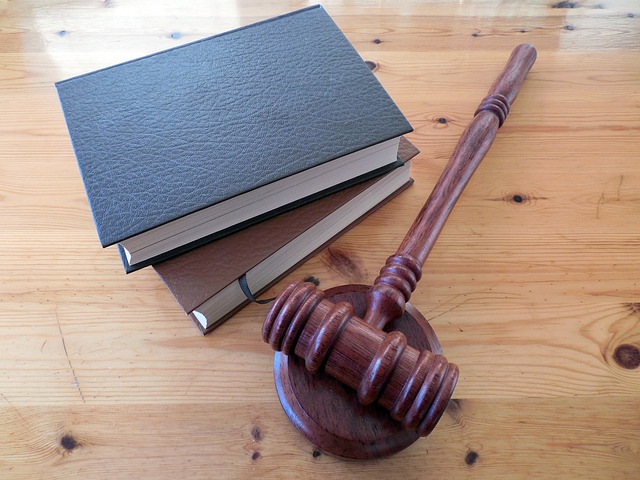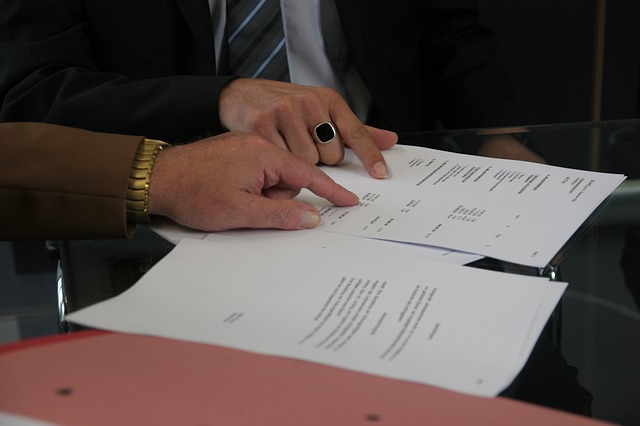Employment Discrimination
About Us
The Utah Antidiscrimination and Labor Division’s (UALD) employment discrimination focus is to administer and enforce the Utah Antidiscrimination Act, Utah Code Ann. §34A-5-101 et seq.
The Utah Antidiscrimination Act prohibits employment discrimination on the basis of race, color, religion, sex, age (40 or over), national origin, disability, sexual orientation, gender identity, pregnancy, childbirth or pregnancy-related conditions. Utah has also added additional protections which provide that employees may express religious and moral beliefs in the workplace in a reasonable manner on equal terms with similar expressions allowed by the employer and that employers may not discharge, demote, refuse to hire, retaliate, or discriminate against an individual based on expressions of religious, political, or personal belief outside of the workplace.
What You Need To Know

How do I know when discrimination has occurred?
An employee may feel that he/she has been treated unfairly by their employer. Personal conflicts, disagreements over management style or personality differences, favoritism towards an employer’s friend or family member are all examples of unfair treatment, but DO NOT necessarily constitute unlawful discrimination.
Discrimination occurs when someone is treated differently or singled out because of their race, color, religion, sex (which includes sexual harassment), age (40 or over), national origin, disability, sexual orientation, gender identity, pregnancy, childbirth or pregnancy-related condition.
How many employees must the employer have?
Your employer must have at least 15 employees — less for certain cases of National Origin, Citizenship or Equal Pay Discrimination.
How long do I have to file a charge?
You must also file your charge of employment discrimination with UALD within 180 days of when you learned of the last alleged discriminatory act. If more than 180 days have passed since the last date of harm, but less than 300 days, your charge will be sent to the Equal Employment Opportunity Commission (EEOC) for investigation.
What happens after submitting your Intake Questionnaire (IQ) to us?
- The IQ will be reviewed.
- If it meets our filing requirements, a charge will be created and sent to you to be signed before a notary public. We provide this service free of charge in our office. Bring photo identification.
- Once the signed charge has been returned, your Charge of Discrimination will be officially opened.
- The case will be forwarded to the EEOC for dual filing under applicable federal laws, but UALD will investigate the case.
- Within 10 days, you and the employer (Respondent) will receive a copy of the charge by mail. You will also receive information about our voluntary mediation program.



What to expect when filing with us
The Initial Intake Interview
Fill out the IQ completely and return it to UALD. The more information
you provide, the easier it will be for UALD to create a charge.
Provide a copy of your W-2 or paystub (keep your originals).
Provide copies of any relevant documentation (keep your originals) that you believe supports your claim.
Examples of relevant documentation:
- Termination notices
- Letters of discipline
- Documents supporting your request for a reasonable accommodation for a disability
- Medical Records
- A list of Witnesses
Filing the charge
If the allegation of discrimination contained in the IQ meets our filing requirements, an intake officer will create a formal Charge of Discrimination for your review.
The Charge of Discrimination must be signed by you before a notary public. Notaries can be found in a bank or a library. The Division provides notary services free of charge, but you must be physically present with proof of your identity such as a driver’s license or state-issued identification card.


Mediation
Mediation is a voluntary opportunity to mediate your Charge of Discrimination. A mediator provided by UALD will facilitate communication between the parties who are in disagreement, and see if the differences can be resolved before an investigation. The mediation is NOT a hearing on the facts of the case, and the Mediator will NOT issue a decision on the merits of your case.
Investigation
If the mediation is not successful in settling your case, it will be assigned to an investigator.
The investigator will conduct any fact-finding that is necessary to make a decision about your case.
This may include:
- Requesting additional information from you
- Interviewing you
- Interviewing the employer
- Interviewing witnesses
- Requesting documents (including personnel files, organizational charts, paycheck stubs, etc.) from the employer
- Requesting documents (including medical records, etc.) from you or the employer
Appealing the Decision
After a decision has been made, you may request:
- An evidentiary hearing before an Administrative Law Judge ("ALJ") with the Utah Labor Commission to appeal the decision
- A Substantial Weight Review by EEOC
- A Right to Sue Notice after a decision has been made, or during the investigation
Understanding Mediation
The mediator’s role
An experienced mediator will create opportunities where dialogue and mutual respect may lead to a resolution of the dispute, before UALD proceeds with its investigation.
- The mediator’s role is to work with both parties in the dispute by encouraging and directing conversation aimed at resolution.
- The mediator does not act as an advocates for either party, nor do they render a decision about the merits of the dispute.
- The mediator does not keep any record of the proceedings and if the case moves into investigation, the mediator does not take any part in subsequent division proceedings.
How mediation works
- Either party may decline to attend the mediation, or may leave the mediation at any time. However, all parties are encouraged to make good faith attempts to try to resolve their differences.
- UALD requests that both parties bring all information that may support their positions. Witnesses may be used and affidavits (written notarized witness statements) can also be presented.
- All issues that reach resolution and all agreements made during the Conference are legal and binding after the UALD Director has signed the agreement. If the Resolutions Conference is successful, the case will be closed.
- If the parties cannot resolve their issues during the mediation, the case is assigned to an Investigator for further processing.


Early resolution advantages
The mediation is NOT a hearing on the facts of the case, and the Mediator will NOT issue a decision on the merits of your case.
Early resolution of the charge has many advantages, some of which include:
- Minimizing the time, energy and expense which is often required to address a complaint of discrimination.
- To decide how a dispute will be resolved without a third party imposing a resolution.
- Allowing the charge to be quickly resolved without having to wait months, and in some cases, years.
Outcomes of mediation
If the parties are able to reach a settlement, the Division will prepare a Negotiated Settlement Agreement and the case will be closed.
Key points regarding an agreement:
- An early resolution is not an admission by the Respondent of any violation of the law;
- The Charging Party agrees not to pursue the case any further.
If the parties fail to reach a resolution the case will be assigned for investigation.
How to Appeal
Your request for evidentiary hearing to appeal the Determination and Order issued by the Antidiscrimination and Labor Division (“UALD”) Director begins a formal adjudication process under the Utah Administrative Procedures Act. This process will not be a review of the UALD Determination and Order.
Your request begins a new process where you will gather and present evidence to support your discrimination claim. Neither party can rely on the UALD Determination and Order as evidence in the formal adjudication and the judge does not have the evidence that either party gave to UALD.
Your Options
At any time in the UALD process, both you and the employer may offer to try to mediate or settle the case. A mediator or investigator can assist with settlement discussions.
You may withdraw your charge with the Division and request a Notice of Right to Sue (issued by EEOC) which can be used to file your case in federal district court.
Either party can obtain legal counsel or other representation at any time. UALD must have written Notice of Representation before it will communicate with your representative.
Both you and the employer are obligated to keep UALD informed of a current address and phone number. T UALD may close your case if you cannot be located.
The parties are also required to cooperate fully with the process. UALD may close your case if you do not cooperate with the investigation.
It is illegal for an employer to retaliate against an employee because he or she has opposed any type of discriminatory treatment or because he or she has filed charges, testified, assisted or participated in any proceeding, investigation or hearing alleging discriminatory treatment protected by the law.
This protection applies not only to the Charging Party, but to all other employees who might participate in the investigatory process.
Persons needing reasonable accommodations, interpreters, or assistive devices due to a disability should contact the Division three days in advance of their appointment or hearing.


